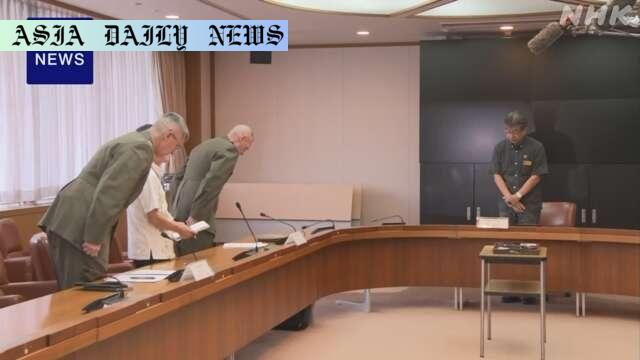Okinawa experiences serious concern over consecutive sex-related cases involving US troops, questioning internal controls.
- Key Point 1: US Marine lance corporal convicted for attempted sexual assault in Okinawa in May 2022.
- Key Point 2: Chief of staff of the US Marine Corps visits Okinawa officials to apologize personally for the incident.
- Key Point 3: Eight separate sex-related cases involving US troops reported since December 2023.
- Key Point 4: Okinawa officials question internal controls and prevention measures within US military forces.

Tragic Incident in Okinawa: The Conviction of a US Marine
The assault case involving a US Marine has sent ripples of shock across Okinawa. A lance corporal was sentenced to seven years in prison earlier this year for attempting to sexually assault a local woman, an attack that also resulted in injury. The incident, which took place on Okinawa’s main island in May 2022, underscores a recurring issue that the community has faced involving the misconduct of US military personnel stationed in the region. This conviction has sparked public outcry and demands for accountability, with many questioning the measures in place to prevent similar incidents.
Apology from US Marine Leadership
Colonel Neil Owens, the chief of staff of the Third Marine Division, took a significant step in personally apologizing to Okinawa’s prefectural officials on behalf of the US Marine Corps. During his meeting with senior officials, including Tamari Masahito, the head of the Okinawa governor’s office, Colonel Owens expressed deep regret over the distress caused to the victim and the local community. He emphasized that the Marine Corps has high standards of conduct for its personnel and asserted that those who violate these standards are held strictly accountable. This apology, however, has been met with mixed reactions, given the rising number of similar incidents in recent years.
Patterns of Misconduct Among US Troops in Okinawa
One of the primary concerns raised during the discussion was the recurrence of sex-related cases involving US troops. According to Okinawa officials, there have been eight such incidents reported since December 2023 alone, compounding fears and frustrations among the local population. Tamari Masahito pointed out that while US forces often claim that only a minority of personnel engage in misconduct, the repeated violations suggest systemic flaws in internal controls and preventative measures. These recurring events not only tarnish the reputation of the military but also shake public trust in the US presence in Okinawa.
Efforts to Restore Public Confidence and Prevent Recurrence
In response to these grave concerns, Colonel Owens affirmed the Marine Corps’ commitment to improving internal controls and collaborating with relevant entities to prevent further occurrences. While many Marines stationed in Okinawa reportedly adhere to high standards of conduct, the actions of a few individuals have cast a shadow over the entire force. Despite these assurances, local officials and citizens remain skeptical about the effectiveness of the proposed measures. Advocacy groups have further called for transparency and stricter oversight to ensure such incidents become a thing of the past.
Broader Implications for US-Japan Relations
The recent events in Okinawa carry broader implications for US-Japan relations, particularly in the context of the long-standing US military presence on Japanese soil. Okinawa hosts the majority of US military personnel stationed in Japan, a setup that has historically been a source of socio-political tension. Incidents like the one involving the convicted Marine exacerbate these tensions, fueling anti-American sentiment and calls for a reevaluation of base operations. Building trust and addressing these issues proactively is vital for maintaining the strategic alliance between the two nations.
Efforts to mend these strained relations require sustained dialogue, genuine accountability, and a commitment to meaningful reform. The apology from Colonel Owens is a step in the right direction, but it must be backed by tangible actions to rebuild confidence and ensure safety in the local community.



Commentary
The Accountability of Military Leadership in Okinawa
The apology offered by Colonel Owens on behalf of the US Marine Corps is a significant gesture that demonstrates some recognition of the harm caused by personnel misconduct. However, one cannot help but ask whether such apologies are enough to address the deeply rooted issues stemming from repeated cases of sexual misconduct. A systemic overhaul may be required to ensure such incidents are entirely rooted out.
Local Frustrations and Government Responsibility
Okinawa’s officials and residents are understandably frustrated by the ongoing incidents involving US troops. Despite decades of cohabitation between Okinawans and the US military, such misconduct perpetuates a cycle of mistrust and anger. Local government representation has been vocal about the community’s grievances, particularly concerning the lack of preventative measures by the US military. This raises questions of accountability and also reflects the Japanese government’s responsibility to urge reforms through diplomatic channels.
Rebuilding Trust and Ensuring Safety
To truly rebuild trust, action must go beyond apologies and promises. The implementation of stricter vetting procedures, cultural sensitivity training, and mechanisms for immediate accountability can form part of a broader strategy to ensure the safety and security of Okinawa residents. By addressing such issues with urgency and transparency, both the US military and the Japanese government can take steps towards fostering a safer environment and a more harmonious relationship.